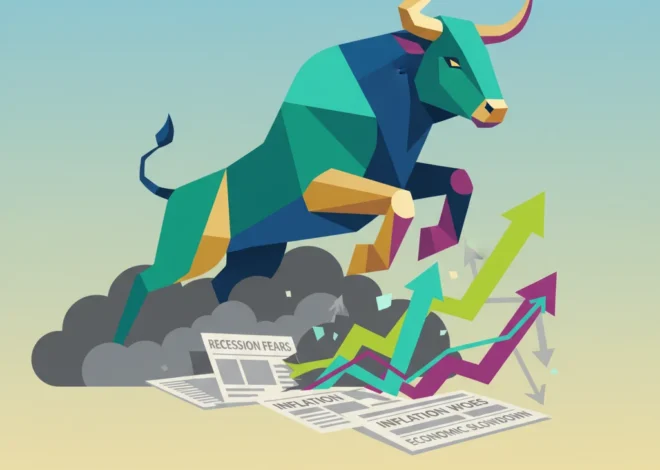
Deal Collapse: Why RedBird’s Exit from the Telegraph Takeover Sends Shockwaves Through Global Finance and Media
In the high-stakes world of international finance and media acquisitions, few stories have been as fraught with complexity and political intrigue as the battle for ownership of The Daily Telegraph. The latest chapter has seen a decisive move: US investment group RedBird Capital has officially withdrawn from the consortium aiming to acquire the iconic UK newspaper. This development, as confirmed by the BBC, is far more than a simple business transaction falling apart; it’s a significant event that exposes the deep-seated tensions between global capital, national sovereignty, and the future of legacy media.
The collapse of RedBird’s involvement in the RedBird IMI joint venture throws the entire £1.2 billion deal into disarray and leaves the future of one of Britain’s most influential publications hanging in the balance. For investors, finance professionals, and business leaders, this story is a critical case study in regulatory risk, the evolving landscape of the media economy, and the powerful, often unpredictable, role governments play in shaping market outcomes.
A Tangled Web: Deconstructing the Deal and its Key Players
To understand the gravity of RedBird’s withdrawal, one must first appreciate the intricate web of players involved in this saga. The situation began not as a straightforward acquisition but as a consequence of long-standing debt held by the newspaper’s then-owners, the Barclay family.
The primary creditor, Lloyds Banking Group, lost patience and placed the Telegraph Media Group into receivership, effectively forcing a sale to recoup its loans. This opened the door for a high-profile auction, attracting interest from various corners of the global investing community. The frontrunner that emerged was a joint venture named RedBird IMI, a partnership between Gerry Cardinale’s US-based RedBird Capital and International Media Investments (IMI), a fund backed by Sheikh Mansour bin Zayed Al Nahyan, the vice-president of the United Arab Emirates.
Here is a breakdown of the key entities at the heart of this complex transaction:
| Entity | Role in the Deal | Primary Motivation |
|---|---|---|
| The Barclay Family | Previous Owners | Attempted to regain control by repaying their £1.2bn debt with funding from IMI. |
| Lloyds Banking Group | Creditor | To recover the substantial debt owed by the Barclay family through a forced sale of the asset. |
| RedBird IMI | Prospective Buyer (Joint Venture) | To acquire the Telegraph Media Group, combining US investment acumen with UAE capital. |
| RedBird Capital (USA) | Junior Partner in JV | To leverage its expertise in sports and media investments for a stake in a major UK publisher. Now withdrawn. |
| IMI (UAE) | Senior Partner / Funder | To secure a prestigious and influential global media asset, funded by Abu Dhabi royalty. |
| UK Government | Regulator | To scrutinize the deal on public interest grounds, specifically concerning press freedom and foreign state influence. |
The initial plan was for RedBird IMI to repay the Barclay’s debt to Lloyds, effectively taking control of The Telegraph and its sister publication, The Spectator. However, this structure immediately raised red flags within the UK’s political establishment.
Beyond the Golden Arches: McDonald's UK Scandal and the New Financial Reality of Corporate Culture
The Political Firestorm: When Investing Meets National Interest
The prospect of a major British newspaper, often dubbed the “Torygraph” for its influence within the ruling Conservative party, falling under the control of a foreign state-backed entity sparked a political firestorm. Concerns were not centered on the principles of foreign investing in the UK economy, but on the specific nature of the buyer. The UAE’s involvement triggered a formal government intervention.
Lucy Frazer, the UK’s Culture Secretary, issued a Public Interest Intervention Notice (PIIN), citing the need to protect accurate news presentation and free expression of opinion. This move launched investigations by both the Competition and Markets Authority (CMA) and the media regulator, Ofcom. The core question was whether ownership by a foreign government could compromise the editorial independence of the newspaper, a cornerstone of democratic society. According to a report from Reuters, the government’s intervention was a direct response to pressure from lawmakers concerned about press freedom.
The UK government then went a step further, proposing new legislation that would explicitly ban foreign state ownership of UK newspapers. This legislative maneuver effectively made the RedBird IMI takeover, in its current form, impossible. It was a clear signal to the global stock market and private equity world that certain UK assets, particularly in media, are subject to a level of political scrutiny that transcends typical financial and economic considerations.
Financial Fallout and the Next Bidders
With RedBird out and the UK government legislating against the Abu Dhabi-led takeover, the Telegraph is once again up for a full-blown auction. IMI has signaled its intent to divest its holding and act as a lender rather than an owner, but the landscape has fundamentally shifted. The failed deal has implications for the valuation of the asset and the types of bidders who will now step forward.
The initial £1.2 billion figure was largely to cover the debt, but a competitive auction could see the price fluctuate based on the perceived strategic value of the Telegraph in today’s media market. The economics of newspaper ownership are challenging, but the Telegraph brand remains powerful and profitable, making it an attractive, if complicated, prize. A report in The Guardian highlights that IMI will now look to sell the paper and magazine in an open auction, pivoting its strategy from owner to creditor.
So, who is left in the running? A new cast of potential suitors is expected to emerge, likely dominated by UK-based media groups and private investors who do not carry the same political baggage.
A British Broadcasting Behemoth? Unpacking the Landmark Sky-ITV Takeover Talks
Here’s a look at the potential contenders who may enter the fray:
| Potential Bidder | Profile | Potential Strengths / Weaknesses |
|---|---|---|
| DMGT (Daily Mail and General Trust) | Owner of the Daily Mail, a direct competitor. | Strengths: Deep industry knowledge, potential for cost synergies. Weaknesses: Significant competition and regulatory hurdles. |
| National World | A UK-based regional newspaper group led by industry veteran David Montgomery. | Strengths: Experience in newspaper management. Weaknesses: Smaller scale, may need financial partners. |
| Sir Paul Marshall | Hedge fund tycoon and co-founder of GB News and UnHerd. | Strengths: Significant personal wealth and a clear interest in influential media. Weaknesses: Political leanings could attract scrutiny. |
| A European Media Group (e.g., Axel Springer) | German-based owner of Politico and Bild. | Strengths: Experience in digital transformation of news. Weaknesses: Still a foreign owner, though less politically sensitive than a state-backed fund. |
The Broader Picture: A Microcosm of Global Trends
The Telegraph saga is not an isolated incident. It is a microcosm of several powerful global trends at the intersection of finance, technology, and geopolitics.
- The Geopolitics of Investment: This case demonstrates a growing trend of “economic nationalism,” where governments are increasingly using regulatory power to block foreign investments in sectors deemed critical to national security or cultural identity. This has profound implications for cross-border M&A and the global flow of capital.
- The Crisis of Legacy Media: Traditional newspapers continue to face immense pressure on their business models. Declining print circulation and competition from digital-native outlets make them financially vulnerable. This vulnerability makes them ripe for takeovers, often by actors with motives beyond pure financial returns, such as political influence.
- The Search for New Models: The struggle to fund quality journalism is a defining challenge of our time. While this deal revolved around traditional ownership, the wider industry is experimenting with everything from non-profit structures to reader-funded models and even nascent explorations into how blockchain technology could provide transparent content verification and rights management. The core issue remains: how to make high-quality information economically sustainable.
Conclusion: An Uncertain Future
RedBird Capital’s withdrawal from the Telegraph deal is the end of one chapter but the beginning of another in this complex corporate drama. The newspaper’s fate is now in the hands of a new auction process, one that will be intensely watched by the worlds of finance, media, and politics.
For the broader market, this serves as a cautionary tale. It underscores that in an era of heightened geopolitical tension, the principles of free-market investing can and will be superseded by national interest. The smooth functioning of our global economy relies on a predictable set of rules, and when those rules are subject to sudden political intervention, it introduces a volatility that all investors must factor into their strategies. The future of The Daily Telegraph is not just about who owns a newspaper; it’s about the evolving relationship between capital, power, and the press in the 21st century.


